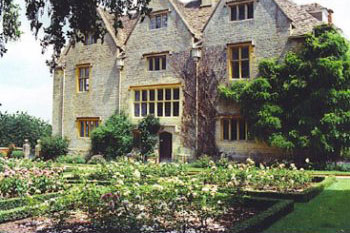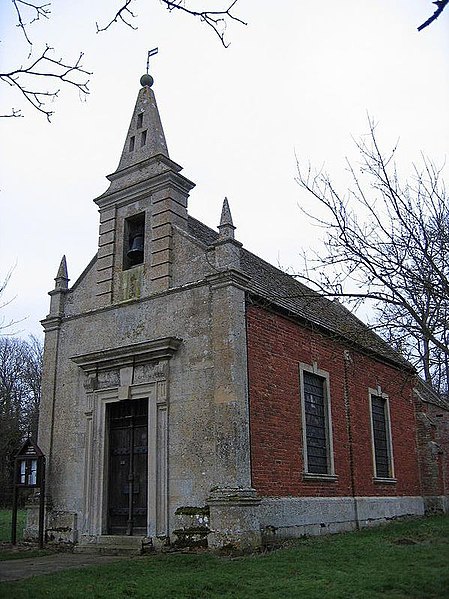Modernism assumes we live in a post-Christian era. And in the more pessimistic form, which Eliot helped inaugurate, its adherents find few ordering principles for modern life, adopt a general mood of bleak disillusionment, and attack the fallacies and frailties of the day. (Invitation to the Classics, p. 319)Four Quartets are probably his most famous poems after he converted.
Four Quartets are four interlinked meditations with the common theme being man's relationship with time, the universe, and the divine. In describing his understanding of the divine within the poems, Eliot blends his Anglo-Catholicism with mystical, philosophical and poetic works from both Eastern and Western religious and cultural traditions, with references to the Bhagavad-Gita and the Pre-Socratics as well as St. John of the Cross and Julian of Norwich.
http://en.wikipedia.org/wiki/Four_Quartets
The "Four Quartets" are unified in their focus on four elements: air ("Burnt Norton"), earth ("East Coker"), water ("Dry Salvages"), and fire ("Little Gidding"). The common theme is summed up as "redeem the time" (Invitation to the Classics, p.320). "Throughout the poetry Eliot speculates on both the nature of the present age and the impact of the eternal on the present" (p. 320).
Here is Burnt Norton in the English Cotswalds (where we want to go on our 25th wedding anniversary!):

"Time past and time future
What might have been and what has been
Point to one end, which is always present."
from: "Burnt Norton"
Here is East Coker a village in Somerset, England:

"Our only health is the disease
If we obey the dying nurse
Whose constant care is not to please
But to remind of our, and Adam's curse,
And that, to be restored, our sickness must grow worse."
from: "East Coker"
My favorite was "Dry Salvages" that refers to the rocks off the northeast coast of
Cape Ann, Massachusetts where Eliot spent vacations during his childhood.
 |
| http://www.captainshouse.com/salvages.html |
The poem can be described as being about water and hope. It begins with images of the sea, water, and of Eliot's past; this water later becomes a metaphor for life and how humans act. This transitions into an image of a ringing bell and a discussion on time and prayer. Images of men drowning dominate the section before leading into how science and ideas on evolution separate mankind from properly understanding the past. This ends with Krishna stating that the divine will, and not future benefits or rewards, matters. The fourth section is a prayer to the Virgin Mary for fishermen, sailors, and the drowned.
The end of The Dry Salvages starts with a discussion about how people attempt to see the future through various superstitious means. Then the narrator tries to convince the reader that resignation about death is necessary. However, such resignation should be viewed as pushing the self towards redemption and the eternal life in the next world. By acting properly, one is able to overcome life and move towards the next world. (http://www.captainshouse.com/salvages.html)
I was having a hard day and wanted to run away to the beach where I often go and spend days of prayer. For that reason, these lines spoke to me:
The river is within us, the sea is all about us;
The sea is the land's edge also, the granite,
Into which it reaches, the beaches where it tosses
Its hints of earlier and other creation:
The starfish, the horseshoe crab, the whale's backbone;
The pools where it offers to our curiosity
The more delicate algae and the sea anemone.
It tosses up our losses, the torn seine,
The shattered lobsterpot, the broken oar
And the gear of foreign dead men. The sea has many voices,
Many gods and many voices. (From "Dry Salvages")
SparkNotes.com says:
This quartet departs from the pessimism and human ruins of the other three to consider humanity as a whole, as an entity with a unified subconscious and memory that produce mythic structures. Humanity is, thus, placed on a level with the natural world as something with a history and with cycles of rebirth and renewal.
Being that I am a non-pessimistic person, it figures I would like the most hopeful of them all.
Invitation to the Classics says,
But he makes it abundantly clear in the last poem, "Little Gidding" where the narrator makes a pilgrimage to the chapel of Little Gidding in Huntingdonshire. From the beginning this points to communion with God. This can happen anywhere, at anytime though. It comes through prayer and the work of the Holy Spirit. The element here is fire which hearkens to the day of Pentecost (May 19, 2013) and contrasts with the "fires of the age" with allude to the bombings in London during World War II where Eliot was a fire warden. It also alludes to the desire for the things of the flesh.
"The only hope, or else despair
"What we call the beginning is often the end
And to make and end is to make a beginning.
The end is where we start from."
"We shall not cease from exploration
And the end of all our exploring
Will be to arrive where we started
And know the place for the first time."
Here is the chapel in Little Gidding:

Invitation to the Classics says,
The ceaseless flow of water figures the ceaseless flow of humanity's aspirations to know the divine in the different ways and cultures. All such efforts -- "hints and guesses" -- point toward the fulfillment in Christ, a truth that Eliot suggests in the poem but deliberately understates. (p.320)
But he makes it abundantly clear in the last poem, "Little Gidding" where the narrator makes a pilgrimage to the chapel of Little Gidding in Huntingdonshire. From the beginning this points to communion with God. This can happen anywhere, at anytime though. It comes through prayer and the work of the Holy Spirit. The element here is fire which hearkens to the day of Pentecost (May 19, 2013) and contrasts with the "fires of the age" with allude to the bombings in London during World War II where Eliot was a fire warden. It also alludes to the desire for the things of the flesh.
"The only hope, or else despair
Lies in the choice of pyre or pyre --
To be redeemed from fire by fire."It seems that I needed renewal this morning, and T.S. Eliot did the trick! Who knew?
"What we call the beginning is often the end
And to make and end is to make a beginning.
The end is where we start from."
"We shall not cease from exploration
And the end of all our exploring
Will be to arrive where we started
And know the place for the first time."
Here is the chapel in Little Gidding:


2 comments:
This is great! I've always wanted to be sophisticated enough to really enjoy and 'get' poetry like this. Thanks for the links and the lovely photos too.
I honestly don't know if I totally "GOT" it, but I understood it the second time. The first time was just a "go by feel." Poetry has always been hard for me if it isn't concrete!
Post a Comment